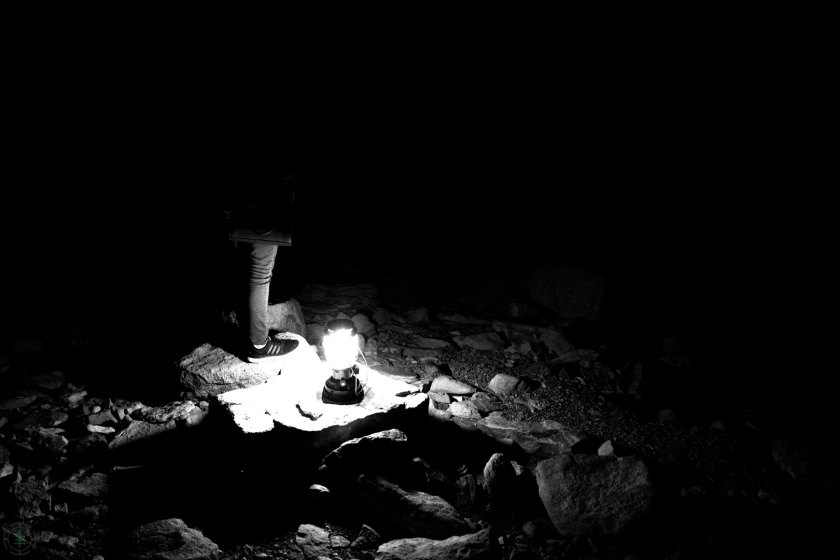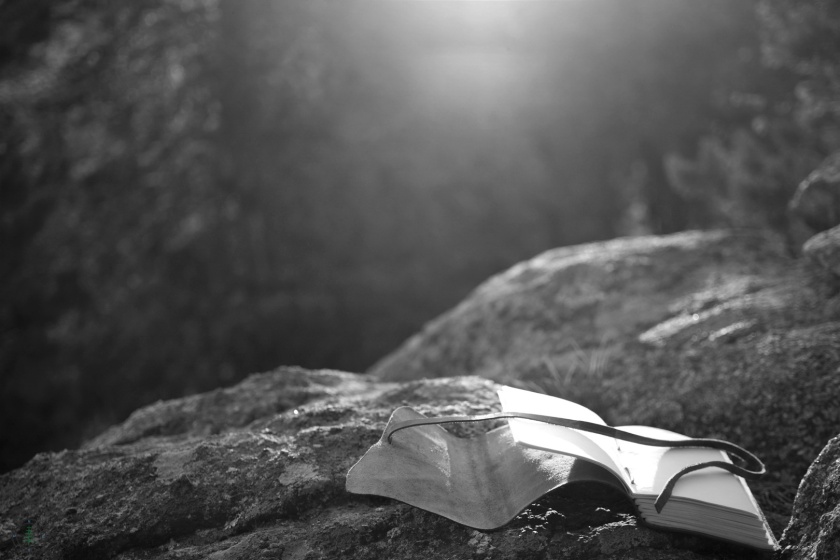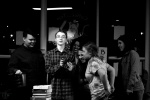
“There is a great sense of autonomy and security to know we can write anyplace. If you want to write, finally you’ll find a way no matter what.” -Natalie Goldberg
The darkness becomes a fog when a lantern is lit and lifted to illuminate a face whose eyes are dilated and dart fearfully around the subtle entrances of the forested walls. There are barely perceptible spaces between the trunks of trees where I can enter the unknown, the darkness, the over-thinking portion of the human mind that makes monsters out of the absence of light. The fire barely penetrates the thick woods and all that’s truly left is the path ahead.
I wonder if Robert Frost would have taken a different path had he known this mode of travel and seen every road submerged beneath thick shadows and eerie shapes. For none of the roads I look at are less traveled by, and I decide this is closer to our reality.
Never knowing which road to take. Life is lived best stumbling through the darkness and chancing upon the lights that still succeed to shine through the murk.
I do these things more out of curiosity than a sense of responsibility. Wandering through the woods and worrying about what’s in the darkness is a more grounding fear than anything else life throws at me. It’s a sort of therapy against the mundane. A shock of feeling amidst the cold gray asphalt trails back around the safe suburbs I call home.
As I set the lantern down and launch my way over a fallen trunk, I feel the rough, freezing bark against my skin and the ice leaves pricks of cold spots chattering their way over my palms. It’s in that cold, with my lantern on the ground and my hands on a camera that I finally feel comfortable with myself. The darkness hides prying eyes and prevents the ill-meaning voices from finding my hides. I am alone. But that also means I am free.
Are the woods simply my search for escapism? I wonder to myself silently, not judging, the curiosity meandering around in my head making sense out of senseless actions.
Because I am crazy, right? I might smile silently to myself at the idea I’m crazy to wander the woods at night, crazy to take pictures, crazy to be able to smile about it, and yet I’m crazy about it.
The outdoors is my proving ground for identity. It’s where I find solitude enough to view my life away from one of the many boxes it hides in- homes, cars, notebooks, cameras. Here I am forced to look at it all and step outside of them in a mindset I can’t normally reach otherwise. The latter two boxes, safe spaces, havens for my unrest, they are the ways that I remember. They hold memories and realizations to moments I wish to forget, know I must remember, and they continue to hold the parts of me that I don’t want anyone to ever see. Not out of embarrassment or fear, but if I am expecting some sort of reciprocity to my actions, how is anyone supposed to react to glimpsing the letters I write to my soul?
And in the woods I have it, the thought comes swiftly to my mind like the bats flitting around me.
I do not fear baring my open soul, I most fear that because of it I realize it’s the only one here.
Wandering back to my car, I kneel down and extinguish the light that’s guided me through tonight’s journey. As it fades so too does my sight ahead, both on the paths covered in darkness, and the journey I take through my mind day after endless day. For now I’ve found what it is to be content, and I owe that to the sprit of the trees.













